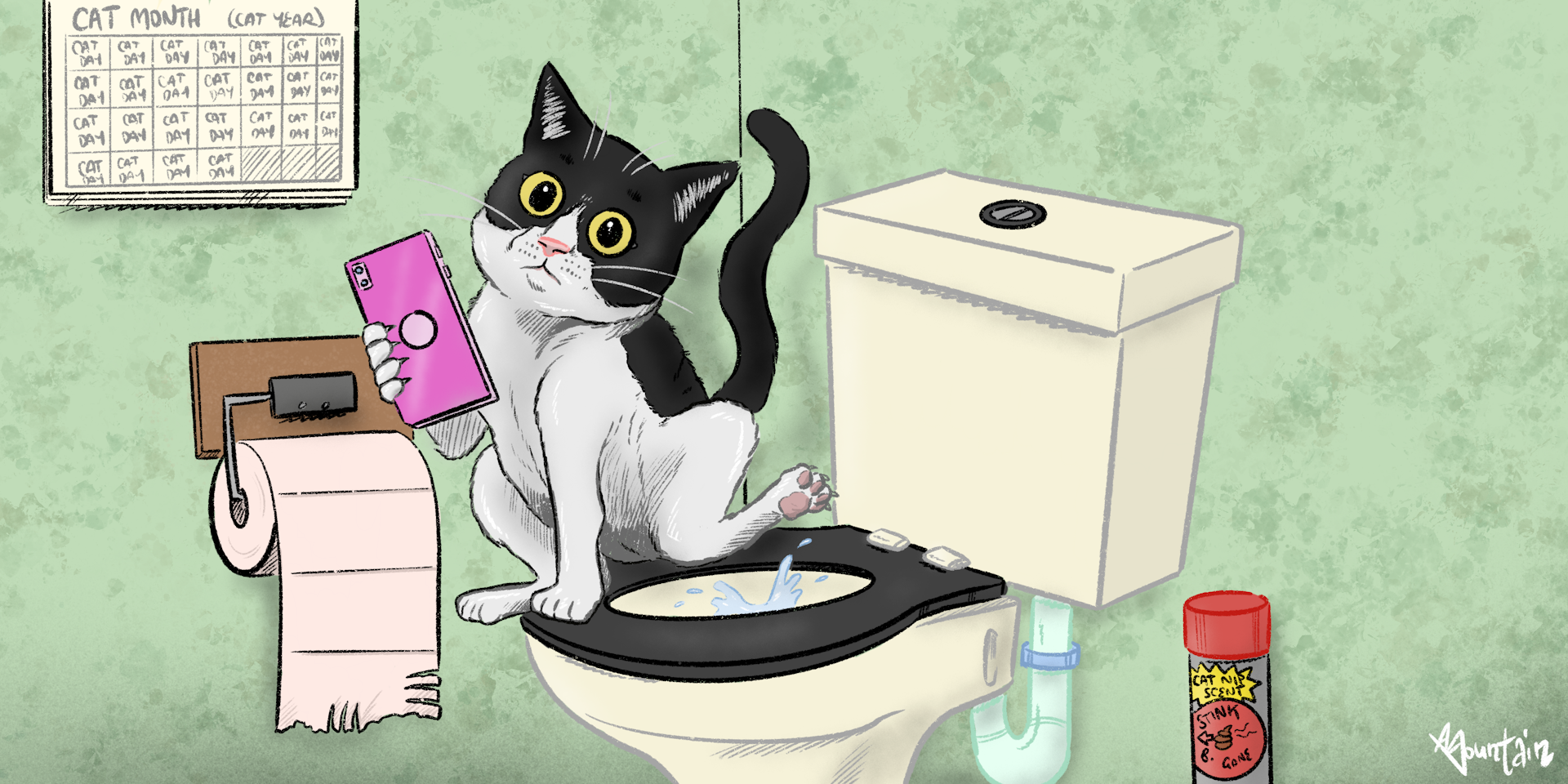Prevent Plumbing Problems: Never Flush Cat Poop Down Your Toilet - Expert Guidance
Prevent Plumbing Problems: Never Flush Cat Poop Down Your Toilet - Expert Guidance
Blog Article
The writer is making several good pointers on the subject of How to Dispose of Cat Poop and Litter Without Plastic Bags in general in this post beneath.
Intro
As pet cat owners, it's important to be mindful of how we throw away our feline good friends' waste. While it might seem practical to purge feline poop down the toilet, this technique can have destructive consequences for both the setting and human health and wellness.
Ecological Impact
Purging cat poop introduces damaging pathogens and parasites into the water, posturing a substantial threat to water environments. These impurities can negatively affect aquatic life and compromise water high quality.
Health and wellness Risks
Along with ecological problems, purging cat waste can also posture health and wellness risks to human beings. Cat feces might contain Toxoplasma gondii, a bloodsucker that can create toxoplasmosis-- a possibly extreme disease, especially for pregnant females and people with weakened immune systems.
Alternatives to Flushing
Thankfully, there are much safer and much more responsible ways to dispose of feline poop. Think about the adhering to options:
1. Scoop and Dispose in Trash
The most usual method of getting rid of feline poop is to scoop it into a naturally degradable bag and throw it in the garbage. Make sure to use a devoted litter scoop and deal with the waste promptly.
2. Usage Biodegradable Litter
Choose biodegradable cat litter made from materials such as corn or wheat. These litters are environmentally friendly and can be safely gotten rid of in the trash.
3. Hide in the Yard
If you have a lawn, think about burying cat waste in a marked area far from veggie yards and water sources. Make certain to dig deep sufficient to stop contamination of groundwater.
4. Mount a Pet Waste Disposal System
Purchase a pet dog waste disposal system especially created for feline waste. These systems utilize enzymes to break down the waste, decreasing odor and environmental influence.
Conclusion
Accountable pet dog ownership prolongs beyond supplying food and shelter-- it likewise entails appropriate waste management. By avoiding flushing pet cat poop down the bathroom and going with different disposal methods, we can lessen our environmental impact and safeguard human health and wellness.
Why You Should Never Flush Cat Poop Down the Toilet
A rose by any other name might smell as sweet, but not all poop is created equal. Toilets, and our sewage systems, are designed for human excrement, not animal waste. It might seem like it couldn’t hurt to toss cat feces into the loo, but it’s not a good idea to flush cat poop in the toilet.
First and foremost, assuming your cat uses a litter box, any waste is going to have litter on it. And even the smallest amount of litter can wreak havoc on plumbing.
Over time, small amounts build up, filling up your septic system. Most litter sold today is clumping; it is made from a type of clay that hardens when it gets wet. Ever tried to scrape old clumps from the bottom of a litter box? You know just how cement-hard it can get!
Now imagine just a small clump of that stuck in your pipes. A simple de-clogger like Drano isn’t going to cut it. And that means it’s going to cost you big time to fix it.
Parasitic Contamination
Believe it or not, your healthy kitty may be harboring a nasty parasite. Only cats excrete Toxoplasma in their feces. Yet it rarely causes serious health issues in the cats that are infected. Most people will be fine too if infected. Only pregnant women and people with compromised immune systems are at risk. (If you’ve ever heard how women who are expecting are excused from litter cleaning duty, Toxoplasma is why.)
But other animals may have a problem if infected with the parasite. And human water treatment systems aren’t designed to handle it. As a result, the systems don’t remove the parasite before discharging wastewater into local waterways. Fish, shellfish, and other marine life — otters in particular — are susceptible to toxoplasma. If exposed, most will end up with brain damage and many will die.
Depending on the species of fish, they may end up on someone’s fish hook and, ultimately on someone’s dinner plate. If that someone has a chronic illness, they’re at risk.
Skip the Toilet Training
We know there are folks out there who like to toilet train their cats. And we give them props, it takes a lot of work. But thanks to the toxoplasma, it’s not a good idea.

We had been shown that report about Can You Flush Cat Poop Down The Toilet? from an associate on a different blog. Do you know someone else who is curious about the niche? Why not promote it. Thanks so much for going through it.
Schedule Report this page